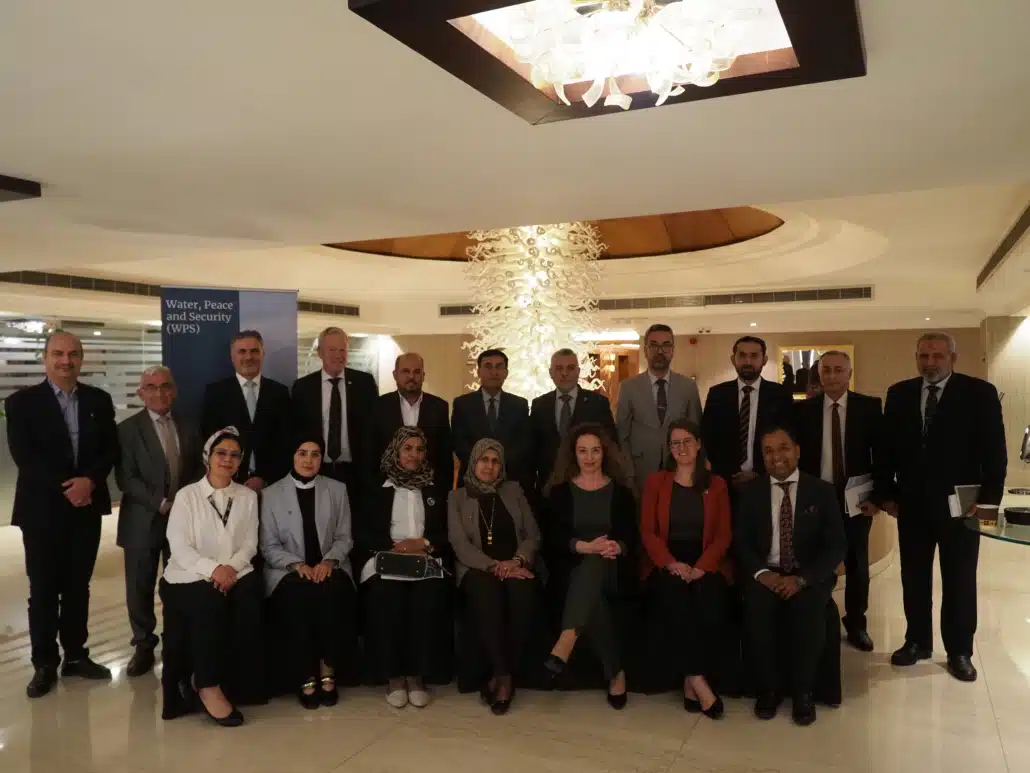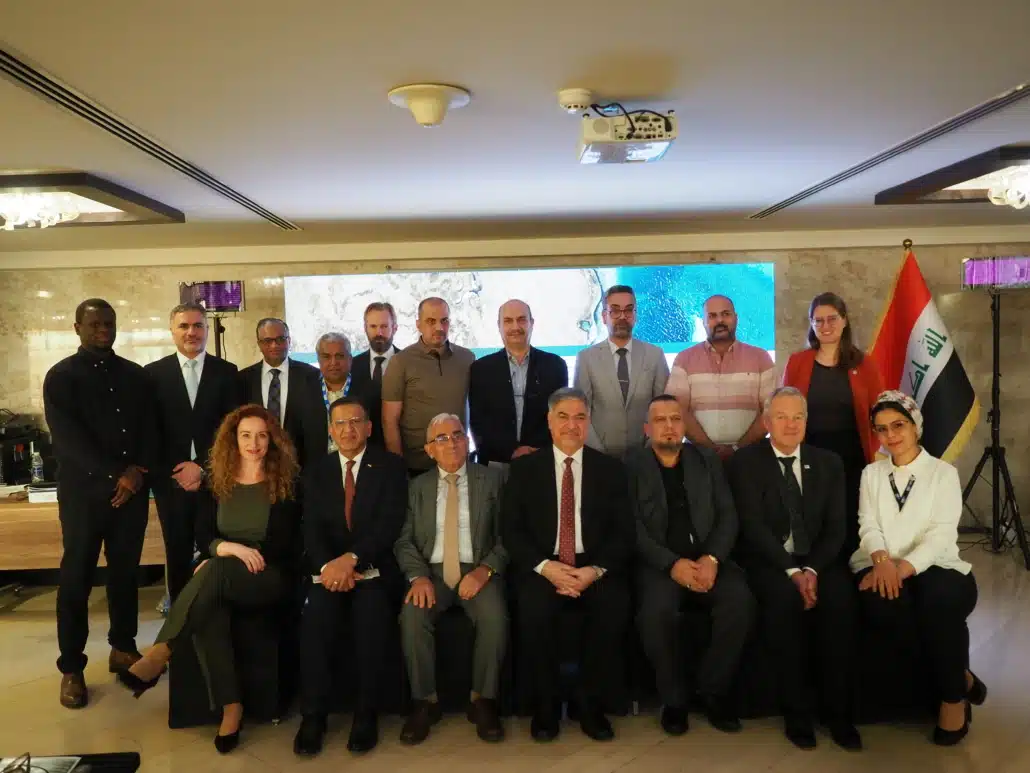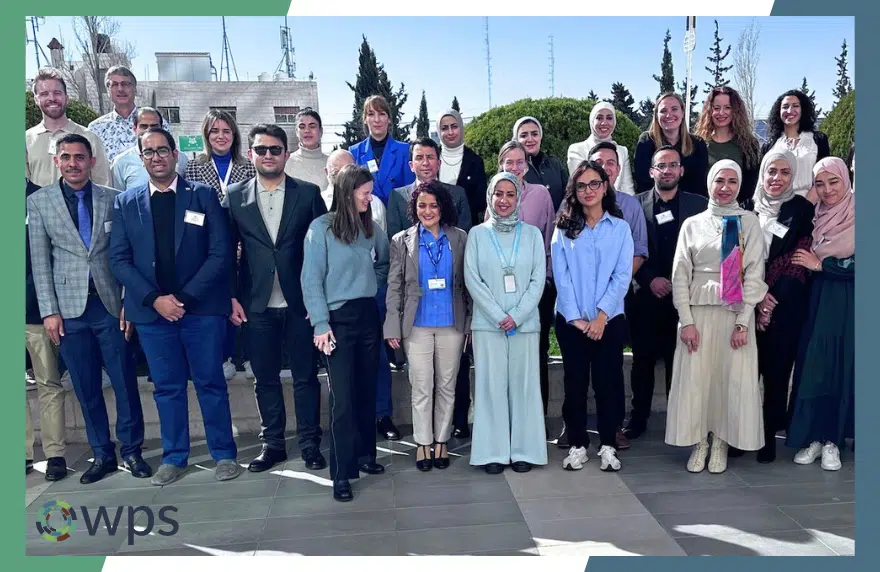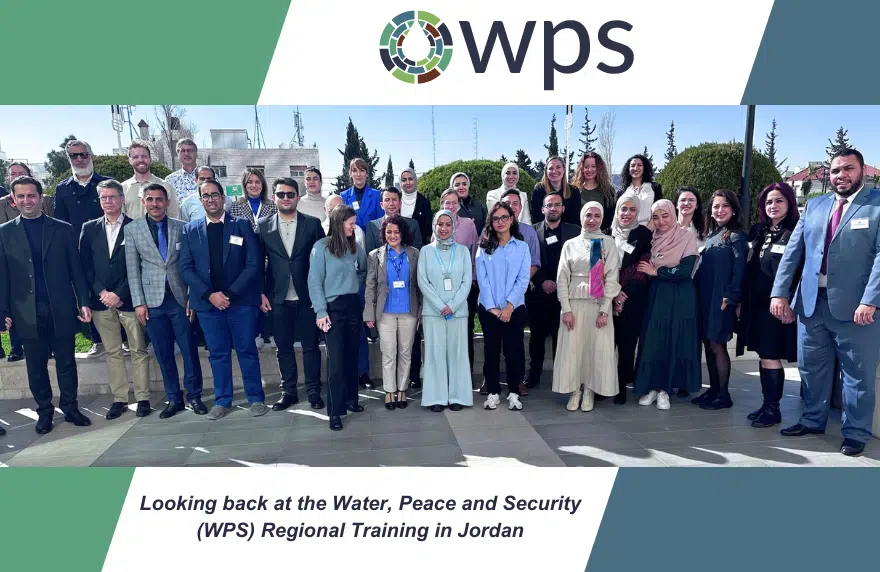On 27 May 2025, a diverse group of Iraqi policymakers, technical experts, academics, and international partners gathered in Baghdad for a dynamic one-day Symposium organised by the Water, Peace & Security (WPS) partnership. Held directly after the 5th Baghdad International Water Conference, the Symposium aimed to transform insights from WPS initiatives in Wasit, Missan, Basra, and Dhi Qar into actionable and collaborative solutions for addressing water-related security challenges in Iraq. Organised by the WPS partnership, the event marked a pivotal step toward transforming data and insights into collaborative solutions for southern Iraq’s mounting water-related challenges.
Towards Collaborative Water Governance in Southern Iraq
The Symposium opened with an address by Dr. Jassim Abd Al-Aziz Al-Falahi, Deputy Minister of Environment, who described Iraq’s current water conditions as the worst in 70 years. He underscored the connection between water scarcity and broader societal risks, including displacement, food insecurity and public health emergencies.
“Seven million people in these governorates suffer from lack of water and poor water quality,” he warned. “We need to work pre- and post-crisis as a team.”
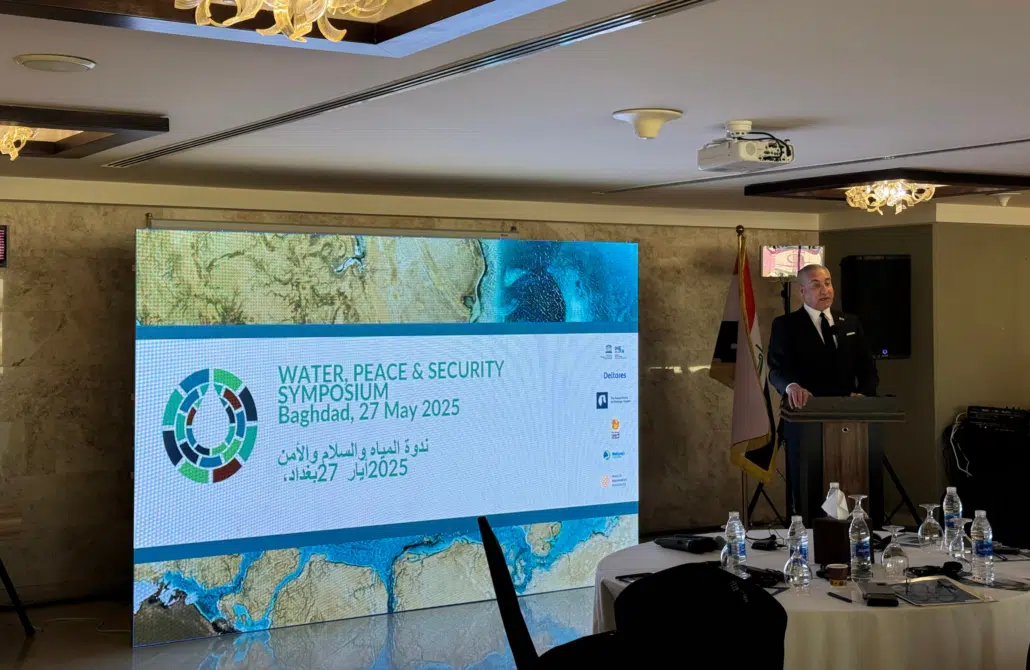
Laura Birkman, Director Climate, Water and Food Security at The Hague Centre for Strategic Studies (HCSS) and Lead WPS engagement in Iraq, shared key findings of the WPS work in Iraq. She reflected on Iraq’s institutional landscape and the challenge of bridging the gaps between policy, data, institutions and civil society. She stressed that monitoring water problems alone is insufficient and called for systems that support root cause analysis, adaptive policymaking, and inter-agency collaboration.
Data-driven solutions and real-time risk management
The event was an opportunity to demonstrate cutting-edge tools designed to support early warning and long-term water governance. Begoña Arellano Jaimerena from Deltares introduced the WPS Policy Dashboard, a data integration and simulation platform to help policymakers evaluate future risk scenarios. Mustafa Al-Rubaye from GIZ showcased the ISCAP Foresight Tool, an early warning system leveraging multi-sectoral data to identify potential conflict hotspots.
These tools highlighted how integrated datasets—ranging from climate to behavioural patterns—can be harnessed to support smarter, proactive decision-making. Still, participants stressed that adoption requires not just technical capacity, but trust, cultural adaptation, and local ownership.
“Iraq is suffering from severe data scattering. The accreditation of data is a problem as well,” one participant noted.
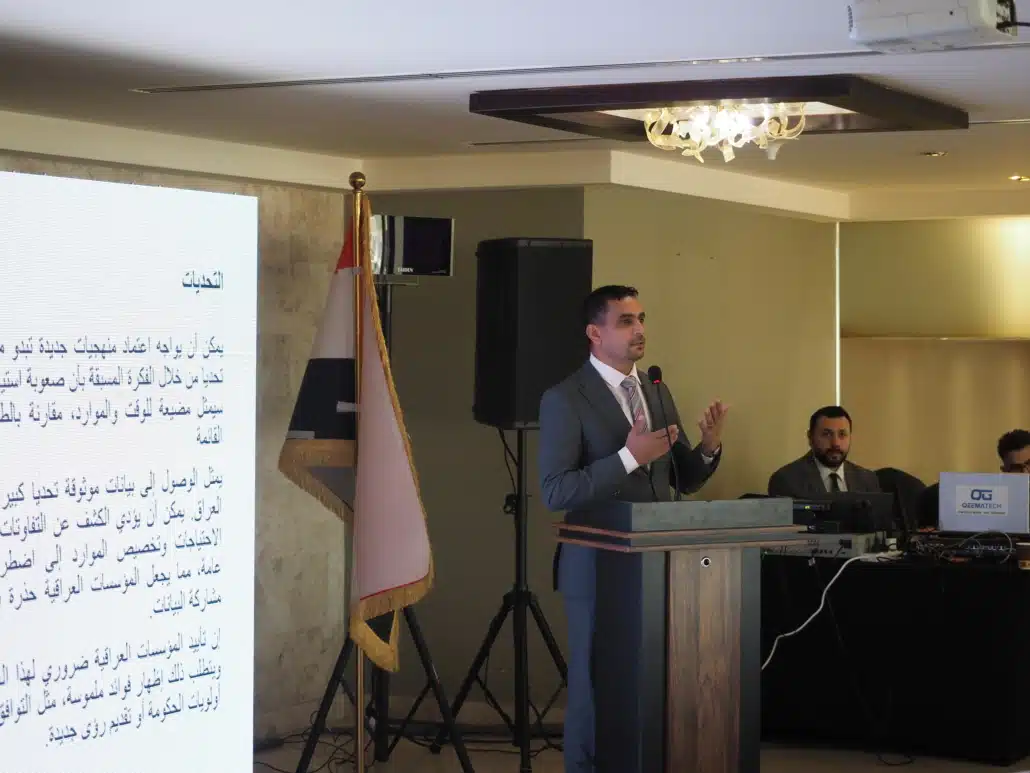
Academic partnerships for a resilient future
In the afternoon, the focus shifted to capacity-building and education. IHE Delft’s Alyssa Offutt and Sundus Al-Ogaidi led a session on embedding water-conflict sensitivity in university curricula. Representatives from leading Iraqi universities, including Baghdad, Basra, Wasit, Dhi Qar, and Missan, committed to developing more interdisciplinary programmes that blend technical knowledge with peacebuilding and governance principles.
“The main issue is that Iraq wastes a lot of water,” an academic stated, adding “We need to leverage knowledge exchange.”
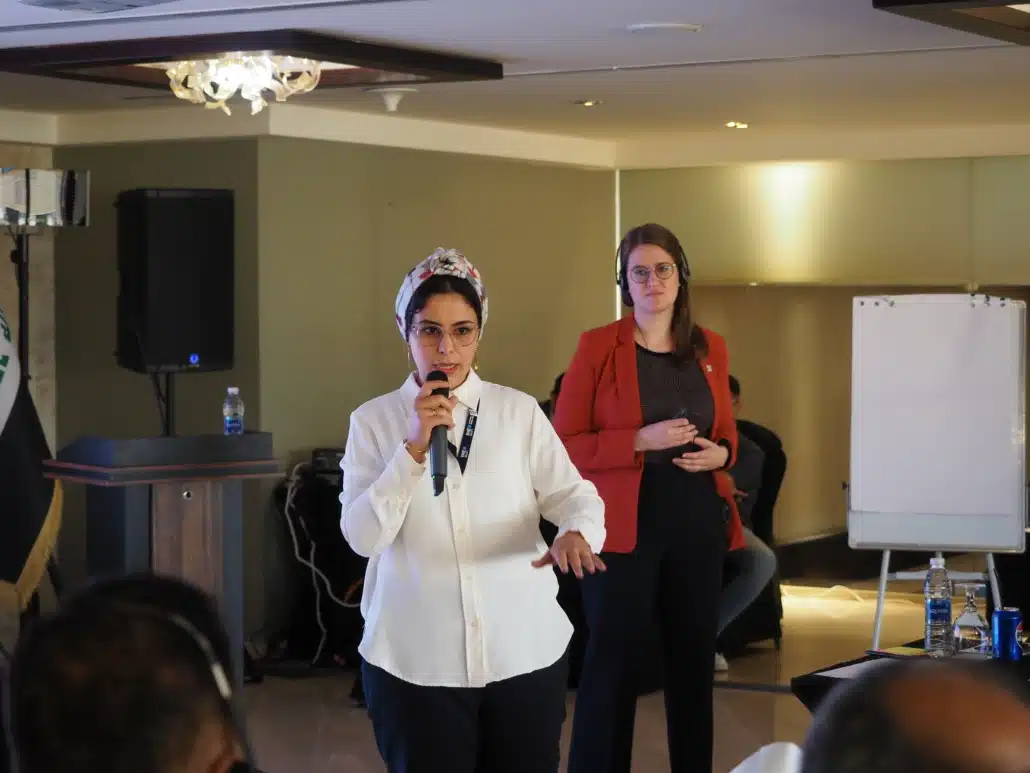
A unified front for water cooperation
A high-level roundtable concluded the day, with the Ministries of Water Resources, Environment, Foreign Affairs, Agriculture and Higher Education calling for stronger institutional collaboration. The message was clear: Iraq’s water crisis demands a government-wide approach—with coordinated planning, harmonised data systems and shared accountability.
“There is a lack of common understanding that this is a collective issue, not a personal issue,” said H.E. Dr. Hisham Al-Alawi, Deputy Minister for Political Planning at the Ministry of Foreign Affairs. “We cannot be afraid of failure. There is a long way to go, but together we can maximise the chances of success.”
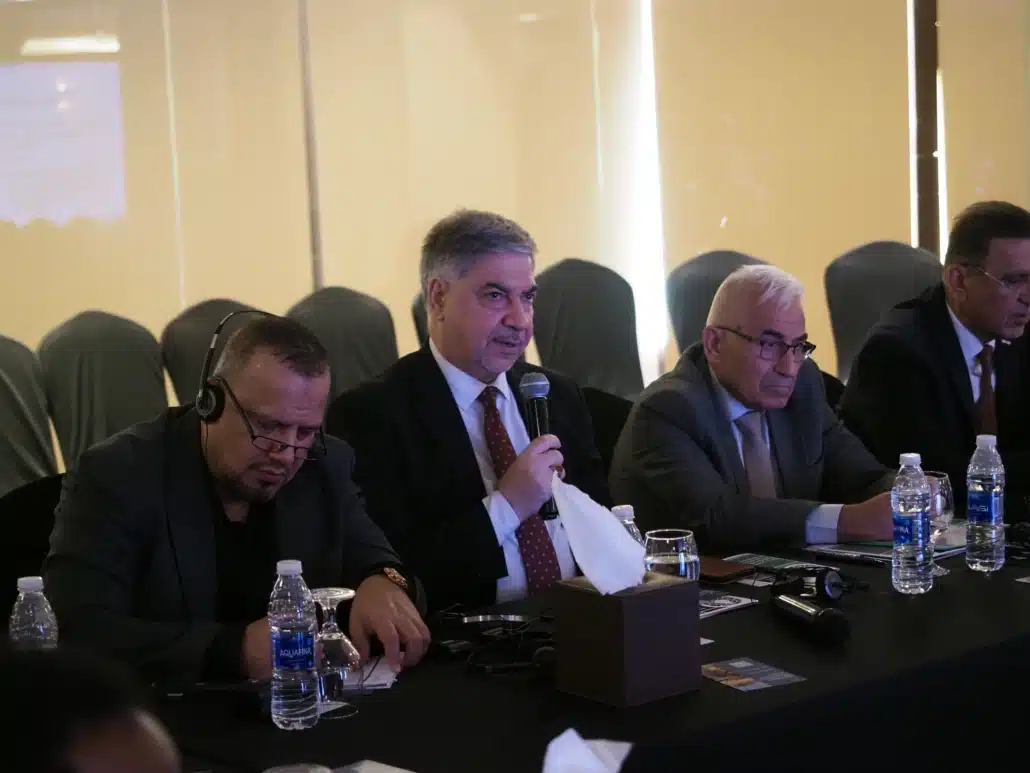
The Symposium was more than just a dialogue — it sparked tangible outcomes and clear priorities:
- Increased adoption of WPS tools
- Political will for integrated governance
- Curricular reform across Iraqi universities
- Community-first approaches
- Data as infrastructure
- Global partnerships
Ministries expressed strong interest in adopting the WPS Dashboard and GIZ Foresight Tool to support both immediate crisis response and long-term planning. Key government bodies — including the Ministries of Water Resources, Foreign Affairs, Environment, Agriculture and Higher Education — underscored the urgency of establishing formal cooperation frameworks and shared data systems. At the academic level, universities committed to integrating interdisciplinary, peace-oriented approaches into water education, reflecting a shift toward more holistic capacity-building. Participants also reaffirmed the importance of local ownership, trust-building, and inclusive decision-making as cornerstones of sustainable water governance. Reliable, centralised, and standardised data was recognised as essential for effective water management and conflict prevention. Meanwhile, international partners such as GIZ, UNDP, IOM, UNESCO, the World Food Programme (WFP), European Union Advisory Mission in Iraq and others reiterated their commitment to advancing Iraq’s water security and peacebuilding agenda.
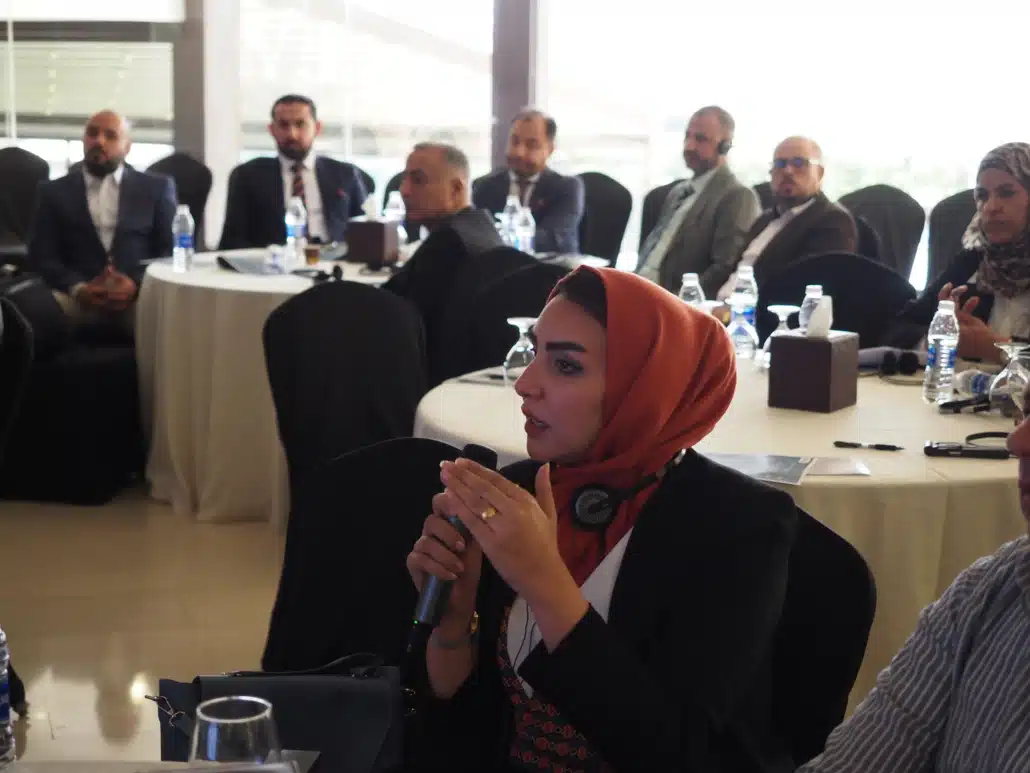
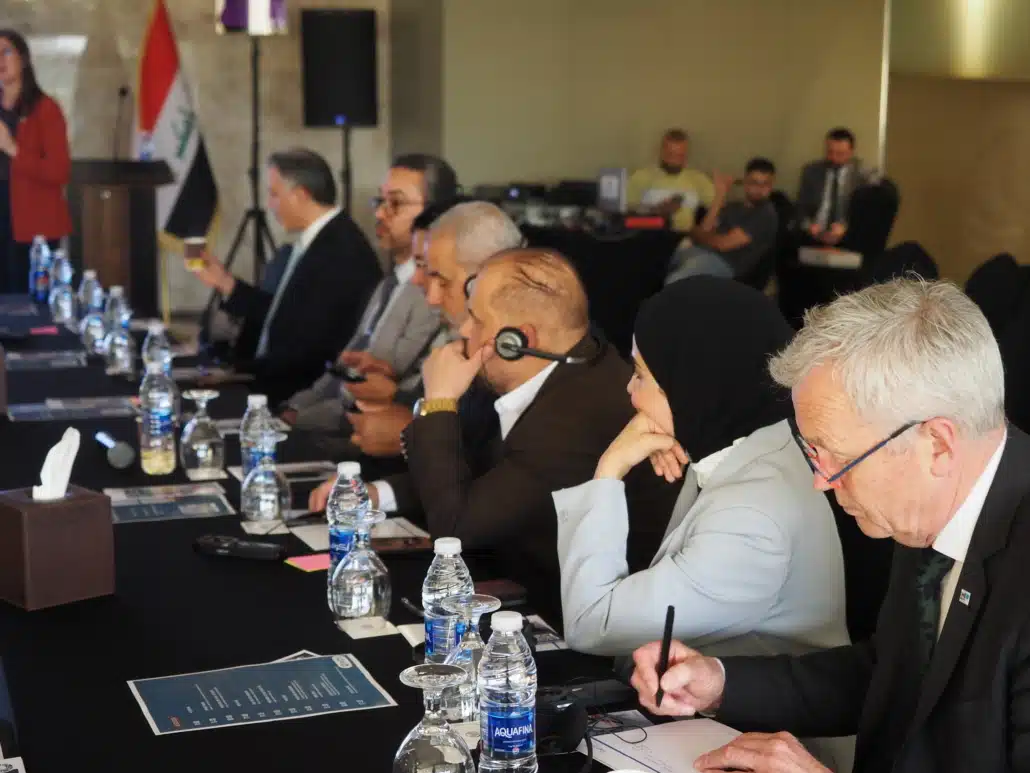
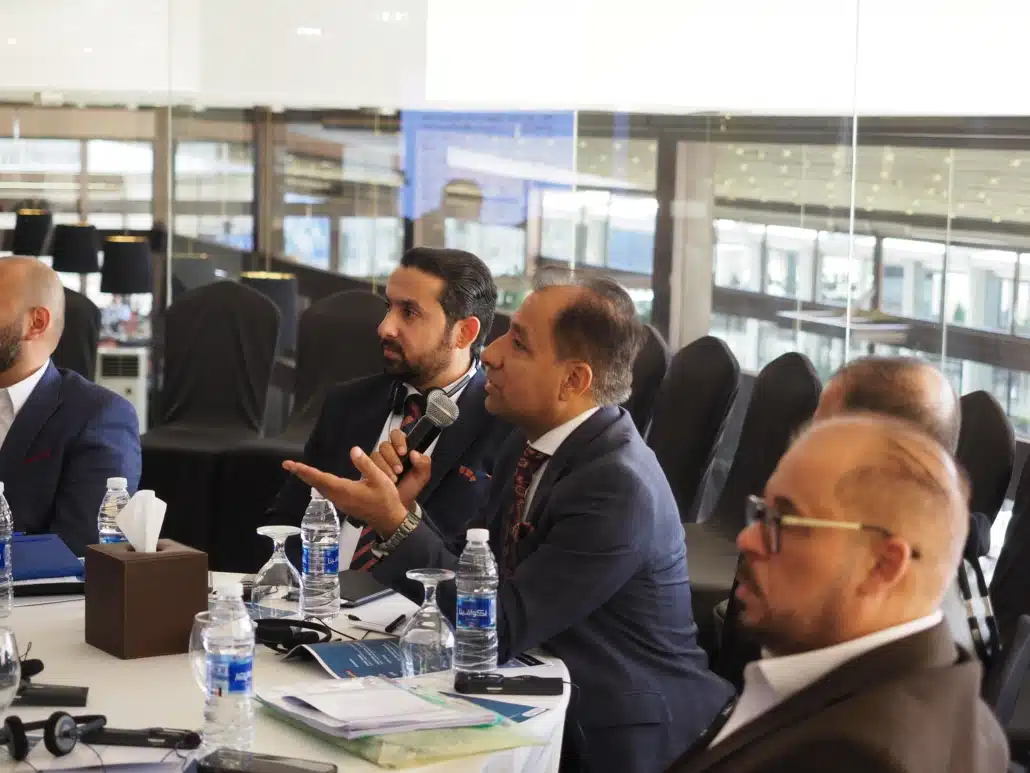
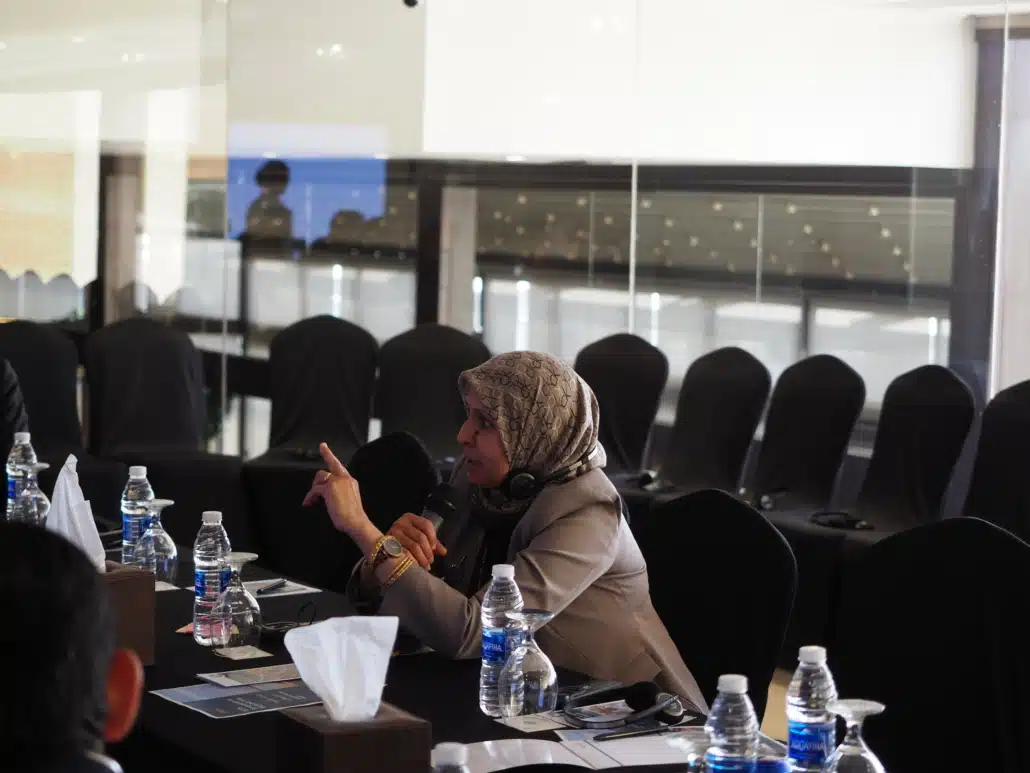
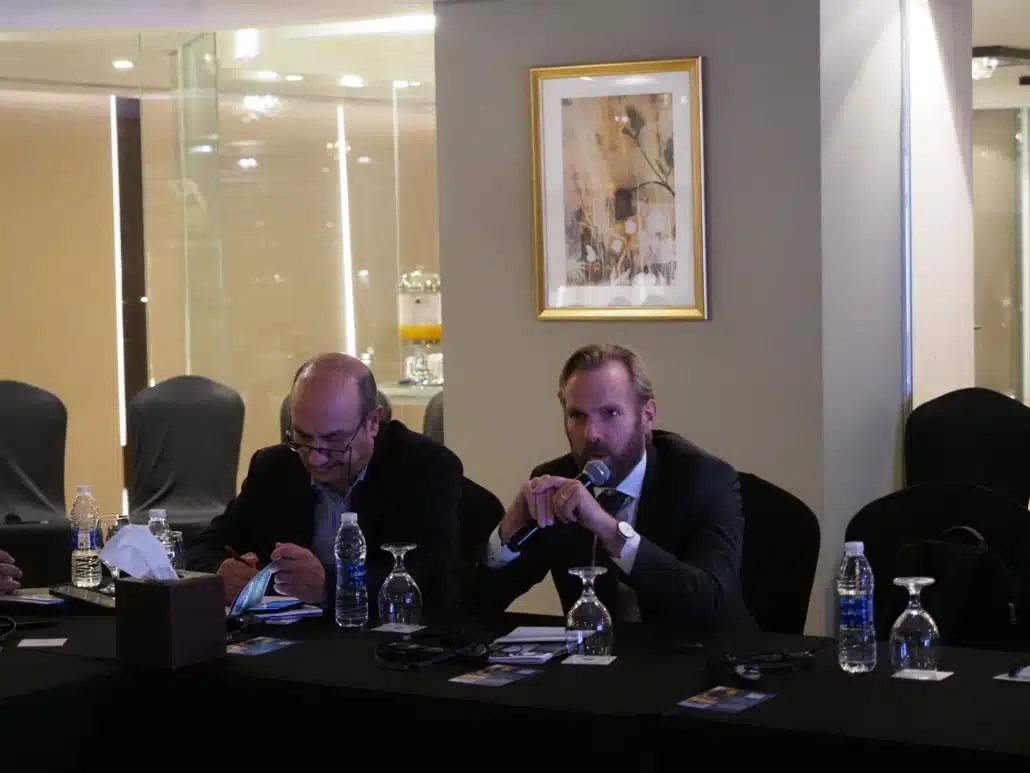
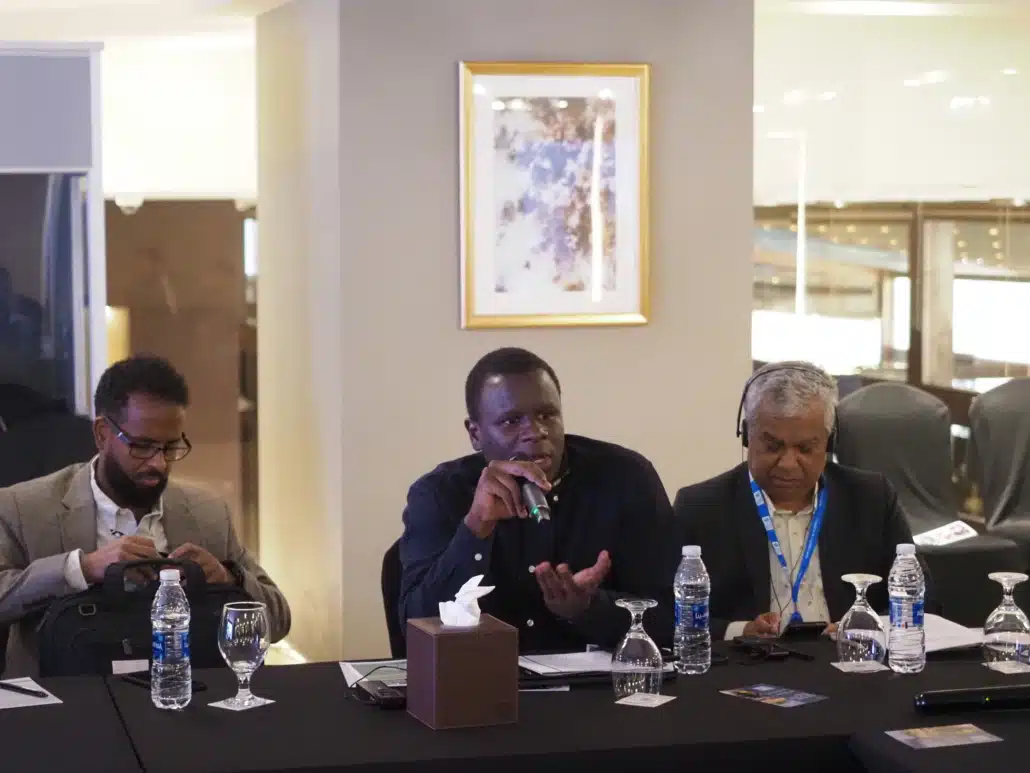
Charting the Path Forward
The Baghdad WPS Symposium reinforced the importance of connecting technical innovation, local knowledge, and political leadership to tackle Iraq’s water challenges. It also highlighted Iraq’s growing role as a regional leader in navigating the complex intersection of water, peace, and security.
The WPS partnership will continue to support Iraqi stakeholders in turning these insights into policy, ensuring that water becomes a source of peace rather than conflict.
Click here to view more about the WPS tools and materials that were given to the participants.
